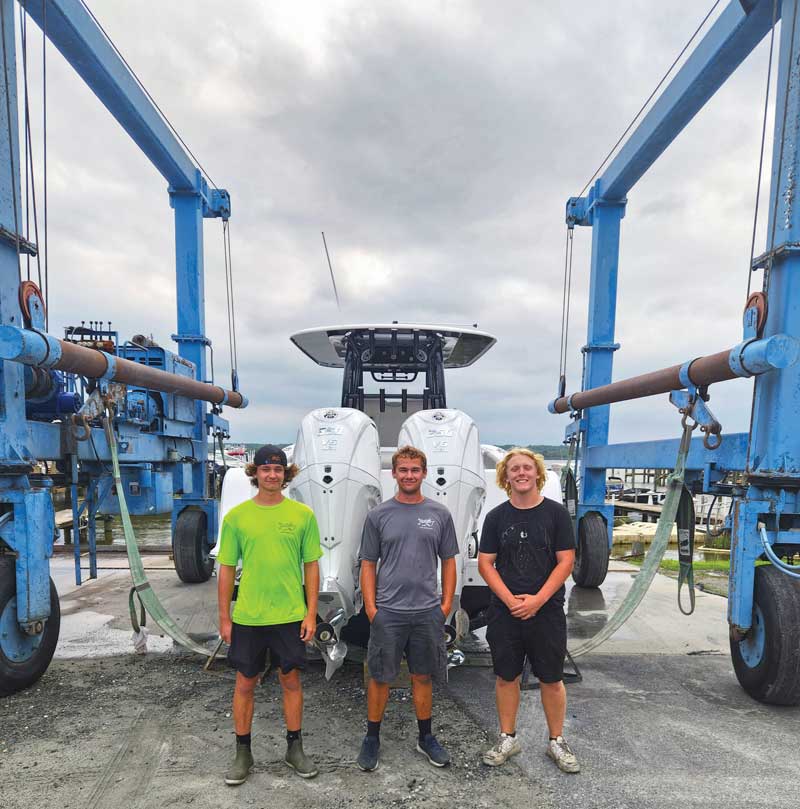It’s a topic we hear of often enough, especially in our Boatshop Reports column—the technical workforce in the marine trades is aging, without a ton of young people in the pipeline willing to take up the ropes. So, when we heard that Riverside Marine in Essex, MD, had recently started an apprenticeship program, we caught up with Jason Baumgartner to learn more.

Currently Jason is working with his “inaugural class,” with two apprentices in the program and a third about to start. He says, “I’ve hired young people who have participated in other programs in the past, and I’ve learned that unless they were previously a technician, the majority of them still need a lot of training to get field ready by the end of it.
“Some people go through these programs and don’t even know how to operate a boat,” he says. “And there’s so much more than just working on engines in this industry. It’s 12-volt electrical, fiberglass work, trailer maintenance, boat rigging…
“The best thing I can do is take a young adult who is eager and wants to learn and take them from the very bottom of the system and work their way up. If you’re 18 or 19 now, by the time you get through my program (2000 hours), learning your craft, honing your skills, you will be fully certified by the time you’re 21 or 22 years old. I send them to school on my dime, and there are two tracks: technical skills and soft skills. I train them to be a better person and a better employee; no matter where they may go later on.”
Jason shared how he got certified through the Department of Labor and works with the Baltimore County Schools CTE program for high school students who want to get credit for working during their senior year. “I am trying to train these young adults to be successful in life, not just here,” he explains.
He’s currently working with two apprentices (with a third about to start) who just surpassed 500 hours. One works with Riverside’s shop foreman, and the other with the lead technician, and every couple of weeks Jason will swap them. He says, “When they first started, they were in more of a helper role, and now they do repairs with assistance from our foremans. The goal is that by 1000 hours we give them the work which our foremans oversee, and by 2000 hours, they should be able to do standalone work depending on how they have progressed through the program. And if they aren’t ready by the end of the 2000 hours but they have a strong work ethic, they are going to keep on with it and keep learning.”
Jason was shocked at the interest and how quickly his inaugural program filled up. “I must have interviewed 25 young adults,” he says. “I’m just trying to do my part.”
To learn more, visit riversideboats.com.